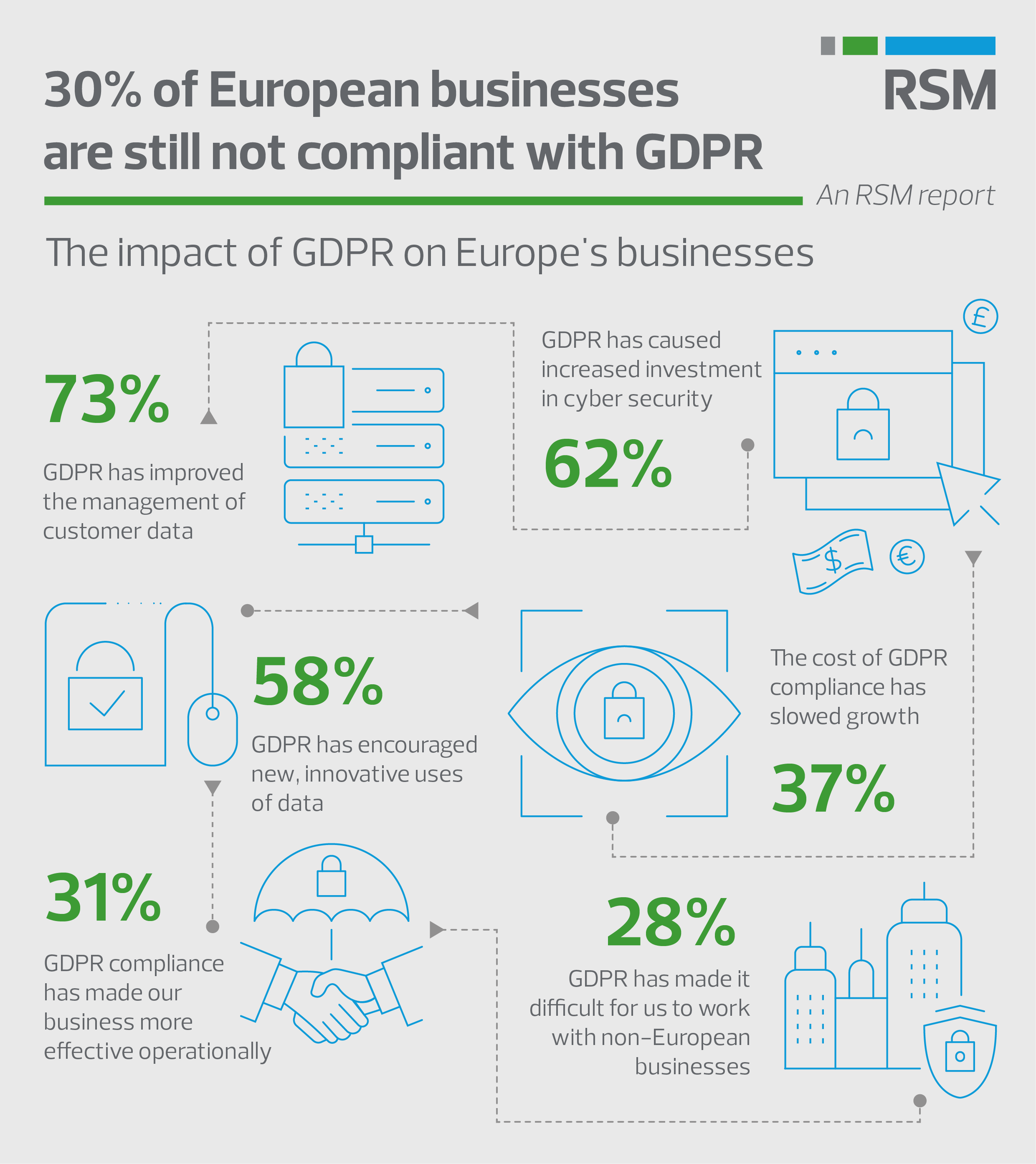Almost a third (30%) of European businesses admit they are still not compliant with GDPR, according to a survey conducted by the European Business Awards on behalf of RSM, one of the largest audit, tax and consulting organisations of advisers with a focus specifically on the middle market. Despite it being over a year since GDPR came into effect, and a raft of fines from regulators only 57% of businesses are confident that their business follows the rules, with a further 13% unsure either way.*

The compliance gap is not down to any single issue, with middle market businesses struggling to understand and implement a whole range of areas covered by the regulation. More than a third (38%) of non-compliant businesses do not understand when consent is required to hold and process data, 35% are unsure how they should monitor their employees’ use of personal data and 34% don’t understand what procedures are required to ensure third party supplier contracts are compliant.
Despite the lack of compliance, GDPR is starting to have a positive impact on cyber security within the EU. Almost three quarters (73%) of European businesses say GDPR has encouraged them to improve the way they manage customer data and 62% say it has seen them increase their investment in cyber security. There remains much more to do, however, with 21% of businesses admitting that they still have no cyber security strategy in place.
Steven Snaith, Technology Risk Assurance Partner at RSM UK, commented: “With so much pressure on organisations to meet complex requirements, we saw GDPR fatigue setting in last year. Middle market businesses were overwhelmed by information from the press, industry bodies and stakeholders. Many organisations simply gave up and reverted back to the old way of doing things.
“But there are signs that this fatigue is about to fade. High-profile fines across Europe have demonstrated that regulators across the EU are serious about enforcement. Businesses are scrambling to catch up once again.”
“One important aspect to note is that GDPR compliance is far wider than just policies, procedures and training. Underlying technology controls need to be robust to safeguard the leakage and unauthorised access of personal data”
Jean Stephens, CEO of RSM International, commented: “GDPR is complex and challenging, but it is also an opportunity for businesses to differentiate themselves with their ability to respond and demonstrate their organisational agility. By letting go of legacy systems and rethinking the way they interact with data, these more entrepreneurial businesses can become more appealing partners and more innovative competitors on the global stage.”
About the data
Research was undertaken among European businesses who have engaged with the European Business Awards. The majority of businesses surveyed were European middle market businesses with a turnover of less than €100m. The sample included businesses from 34 countries.
The data in this release was obtained from two separate surveys:
- The majority of the data comes from 370 responses collected between 29.05.19 and 11.06.19.
- The final data point comes from 597 responses collected between 16.04.19 and 03.06.19.
*The headline, and the first paragraph refer to data taken specifically from respondents who are responsible for GDPR compliance within their organisation




